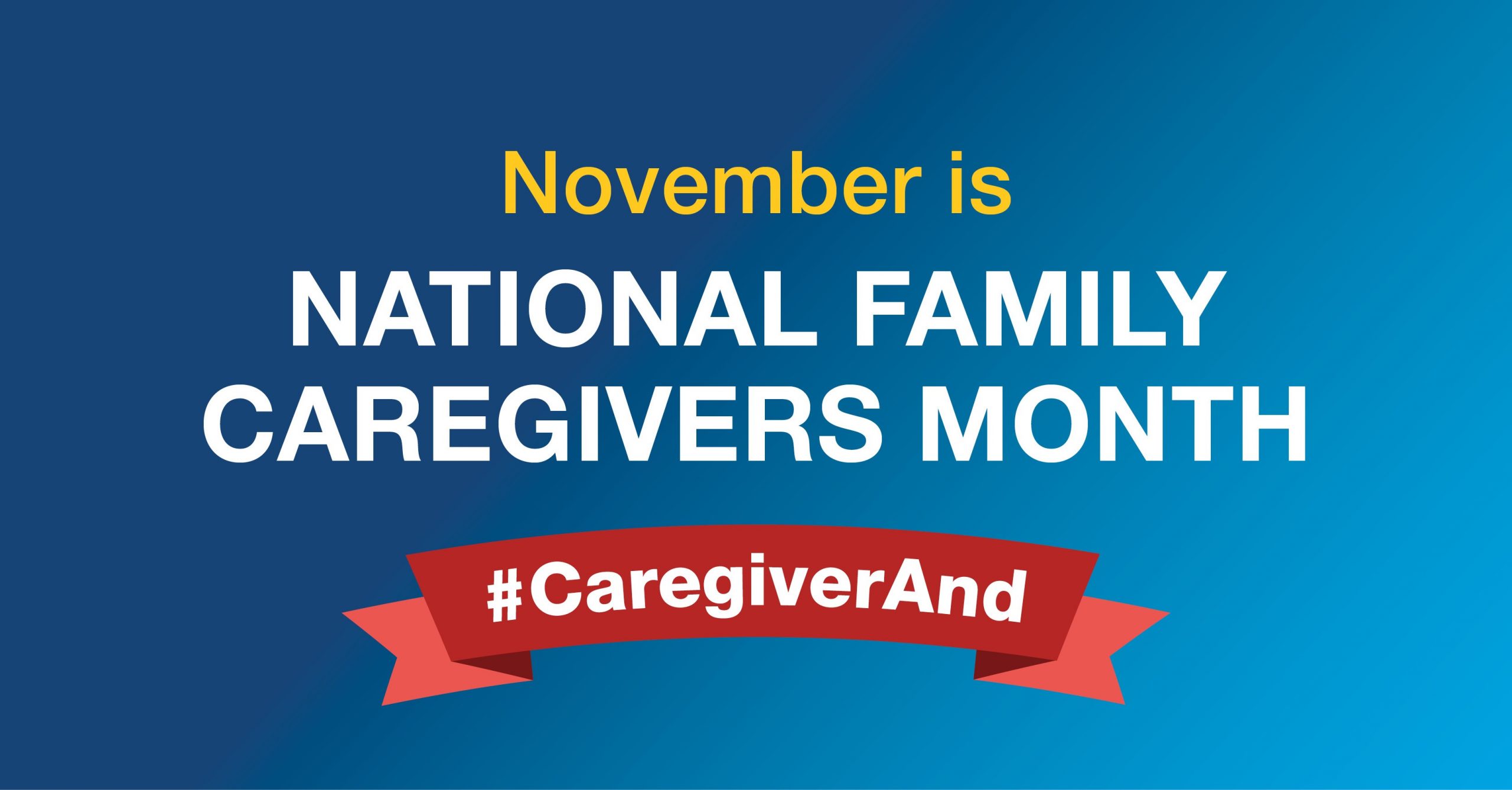Behavioral Health Solutions (BHS) supports National Family Caregivers Month in November – a month long observance with the purpose of drawing attention to the work of caregivers and driving support for their efforts. Caregiving is a demanding and draining experience – both physically and emotionally. BHS recognizes the efforts of these caregivers and knows that they often need care themselves. The BHS network of therapists, psychologists and psychiatrists is available to provide needed help when the emotional toll becomes too great.
The Family Caregiver Alliance defines a caregiver as an unpaid individual (for example, a spouse, partner, family member, friend, or neighbor) involved in assisting others with activities of daily living and/or medical tasks. Remarkably, this has become a significant source of care delivery within the U.S.
The National Family Caregivers Month coincides with National Alzheimer’s Awareness Month – certainly an appropriate association as more than 11 million unpaid caregivers are supporting those suffering with Alzheimer’s disease. Yet, that is a fraction of those providing care as an unpaid caregiver. Nearly 48 million people, one in five Americans, are “unpaid” caregivers. The average age of a care recipient is 69.4; however, 14% are aged 18-49 and suffer from a wide range of mental and physical disabilities. Furthermore, the global pandemic has increased pressure and need for family caregivers. According to Family Caregiving During the Covid-19 Pandemic, published in Gerontologist 2021 Jul 13; 61(5):650-660: “family caregivers reported higher anxiety, depression, fatigue, sleep disturbance, lower social participation, lower financial well-being, increased food insecurity and increased financial worries.”
Caregiving in the U.S. 2020, a study conducted by Greenwald & Associates, is the most recent in a series of studies first conducted in 1997.
This new study shows that the profile of the family caregiver is changing. While caregiving spans all generations, Caregiving in the U.S. 2020 found more young people providing care, including 6% who are Gen Z and 23% who are Millennials. Nearly half (45%) are caring for someone with two or more conditions—a significant jump from 37% in 2015.
Caregiving in the U.S. 2020 also found that:
- Caregivers face health challenges of their own: nearly a quarter (23%) of caregivers find it hard to take care of their own health and 23% say caregiving has made their health worse.
- Personal finances are a concern for family caregivers: 28% have stopped saving, 23% have taken on more debt and 22% have used up personal short-term savings.
- On average, caregivers spend 23.7 hours a week providing care, with one in three (32%) providing care for 21 hours or more, and one in five (21%) providing care for 41+ hours—the equivalent of a full-time unpaid job.
National Today, a website that tracks culturally significant events throughout the year, recognizes National Family Caregiver Month and provides additional information on challenges faced by family caregivers.
- Over half of family caregivers are women.
- One of out of every four caregivers reports diminished family relationships because of caregiving a loved one.
- Most caregivers work outside the home either part- or full-time in addition to their caregiving responsibilities.
- Over a million American young people, aged eight to 18, care for an adult relative on a daily basis.
- Nearly 70 percent of caregivers report they don’t see their doctor regularly because of their responsibilities.
The responsibilities of caregiving, even if gladly undertaken or shared, can result in stress, burnout and depression. But caregivers can take action to help protect themselves. Caregivers need to be certain to focus on self-care including adequate sleep, nutrition and exercise. Caregivers also need to maintain their own personal schedule of routine health screenings and check-ups with their own physician. Being well-informed about the medical and physical needs of the individual receiving care is also important; developing the skills to be competent in caregiving helps reduce the stress of the responsibility.
Although caregiving can be isolating at times, certainly, the statistics prove that caregivers are not alone. That is why it is so important for caregivers to actively seek out resources to help support their caregiving efforts. There are several national organizations supporting caregivers: Family Caregiver Alliance, Caregiver Action Network, and National Alliance for Caregiving to name a few. Local resources can be exceptionally helpful with benefits of support groups and respite services.
Finally, recognize that caregivers who don’t take care of themselves cannot effectively care for others. If you or a loved one is a caregiver in need of mental health services, let BHS help. Call us at 702-608-1976.

